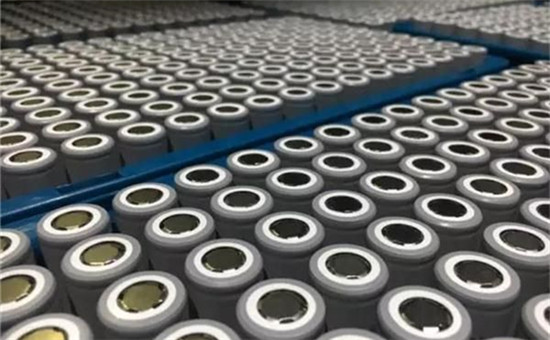World Lithium-ion Battery Market and Forecasts 2019
Nov 08, 2019 Pageview:1341
Shortcomings and opportunities of lithium-ion batteries
Every excellent or unique invention always seems to pose some limitations or shortcomings in their properties or purpose. As you may recall, there may have been stories about the defective properties of lithium-ion cells that tend to lead to disastrous outcomes. It is true, without a doubt, that lithium-ion batteries have been one of the major forces pushing the life and evolution of technology forward. But one needs to be aware of the challenges they pose to appreciate their purpose in this technological generation of ours.
Here are some of the shortcomings posed by lithium-ion cells:
1. Safety concerns
There have been numerous reports questioning the safety of such battery packs. Lithium-ion batteries have been known to overheat and explode in some cases when overcharged or subjected to extreme temperature conditions. Short circuits that occur internally or in cases of overheating, the electrolyte, which is a very flammable compound, can ignite and cause fires. This risk has also subjected lithium-ion batteries to restriction on transportation, especially when they are being shipped in large quantities.
2. The common aging effects
While standard battery types start their lifespan as soon as you open the battery pack, lithium-ion cells start degrading as soon as they leave the factory. This poses a limitation to the inspiring longer charge/discharge cycles that tend to give it quite a long lifespan. Storage in a cool place, however, tends to reduce these effects significantly.
3. High sensitivity to extreme temperatures
Lithium batteries are susceptible to the limitation of too much heat that may be caused by overheating or overcharging of the intended electronic device. Extreme temperatures cause the cells of such batteries to degrade faster than they initially would when subjected to the required temperatures.
The opportunities
Research and development of advanced lithium-ion technology have discovered the possible opportunities for lithium batteries to grow across multiple levels. Extreme fast-charging properties, for example, are some of the much aspired and desired development opportunities required to curb the many limitations that these battery packs pose.
There are many opportunities from which lithium-ion cells can advance into a more reliable source of energy. Advanced techniques used by scientists help understand the possible solutions for such battery failures and thus instill operations that would find solutions to such issues.
Advantages and breakthroughs of lithium-ion battery
Lithium technology, and especially when it comes to lithium-ion cells, have grown into a widely accepted and appreciated the form of renewable sources of energy. The standard electrical devices would not be the same without the emergence and advancements of these battery packs in such a generation. Due to its rechargeable properties and many advantages, lithium-ion cells have progressively surpassed its limited predecessors and offers a better power and energy solution for this generation.
The benefits of lithium-ion cells are incomparable to other battery technologies in terms of contributions to the technological revolution. Here are a few advantages offered by these battery packs and celebrated by many:
1. Prolonged lifespan
Unlike its predecessors, lithium-ion batteries are capable of handling hundreds of charge cycles before their official expiry dates. Based on their utility by the users, some lithium-ion batteries can lose only about 25 – 30% of their capacity after only 1000 cycles. Their high energy storage properties allow them to last much longer than other battery packs hence providing better energy solutions.
2. Less wastage of energy
While lithium-ion batteries can charge at almost 100%, lead-acid batteries can only assume an efficiency of about 80% when fully charged. This makes lithium-ion batteries more efficient as compared to its predecessors when trying your best to acquire the maximum possible efficiency out of the amps before the battery dies out on you.
3. Fast charging properties
It only takes a fraction of time to fully charge lithium-ion batteries as compared to other rechargeable battery packs. This gives you more time to utilize your device in case of emergencies instead of having to wait for hours just for a small percentage of charge.
4. Minimal memory effect
Memory effect can be described as a unique phenomenal noticed in rechargeable battery packs whereby they tend to lose their maximum energy capacity. This occurs when the cells are repeatedly charged after only being partially charged. However, lithium-ion batteries have zero to minimal memory effects, thereby providing better efficiency as compared to NiCad and NiMH cells.
5. High energy densities
Due to their capabilities of high energy densities, the applications of lithium-ion cells have widely been accommodated. This ranges from conventional electronic devices such as laptops to massive electrical inventions and advancements like electric vehicles and planes. Lithium-ion cells are a better solution for a more reliable source of energy in industries and consumer markets.
Relevant breakthroughs
There have been recent breakthroughs on lithium-ion batteries that aspire to see this generation of battery technology advance to higher levels. The emergence of solid-state batteries, for example, has proven to be lithium’s most appraised child capable of doing much more than one could ever imagine. These would cost less, last longer, and provide more charge/discharge cycles as compared to the old lithium-ion batteries.
Solid-state batteries would incorporate a lithium metal anode and have the potential to exhibit high ionic conductivity and stability as compared to lithium metal. The safety risks will as well be reducing as the electrolyte strives to be inflammable, therefore representing a significant breakthrough on all lithium-ion battery packs.
Statistics and forecasts of lithium-ion battery
The intended market for lithium-ion batteries is expected to register a significant increase in utility and sales due to the vast advancements made on the battery pack. The significant factors driving lithium-ion markets are the emergence of brand new and intriguing markets, declining prices, and the increasing sales of consumer electronics and devices.
The automobile industry is expected to register a high growth rate due to the application of lithium-ion technology, which provides high energy densities. The recycling of li-ion batteries is also expected to assure industries of raw materials like lithium and cobalt.
Final thoughts
Lithium batteries are the most widely used battery technology available in this current era. They are a key tool in the massive efforts to attain a more sustainable society. The opportunities they can provide are also less toxic than their predecessors and therefore prove to be a valuable source of energy.
- Prev Article: Making Li-ion Battery Pack
- Next Article: Li Ion Battery Materials Present And Future
Leave Message
Hottest Categories
-
Hottest Industry News
-
Latest Industry News













